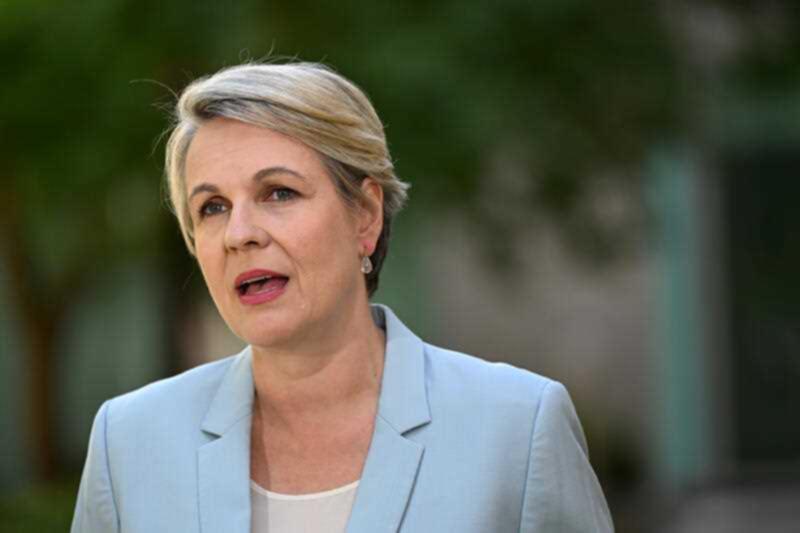ANDREW CARSWELL: Why Anthony Albanese will regret his spiteful move to sideline Tanya Plibersek
ANDREW CARSWELL: Tanya Plibersek is emerging as the single biggest threat to the Albanese Government’s tenuous hold on majority rule. The wrecking ball that Anthony Albanese never expected, nor countenanced.

By numerous accounts, Anthony Albanese wanted Tanya Plibersek to be seen and not heard.
To be tucked away in the background, well away from the public spotlight, and even further away from the real decision-making within his Government.
An insignificant player with an insignificant role.
Sign up to The Nightly's newsletters.
Get the first look at the digital newspaper, curated daily stories and breaking headlines delivered to your inbox.
By continuing you agree to our Terms and Privacy Policy.This was her apparent punishment, for having the audacity to be more popular with regular folk. For daring to back Bill Shorten for the Labor leadership. For being viewed as a prospective Gillard in the event of Albanese pulling a Rudd.
To rule in peace, without the constant need to look over his shoulder, Albanese banished Plibersek to Siberia, saddling her with the unglamorous environment portfolio with all its tedious regulations and unappeasable interest groups.
The spiteful decision has now come back to bite the Prime Minister.
Rather than be constrained by obscurity, Plibersek is emerging as the single biggest threat to the Albanese Government’s tenuous hold on majority rule. The wrecking ball that Albanese never expected, nor countenanced.
Not through some act of revenge. Not her style.
But because environment policy is suddenly front and centre in a brutal political and public debate, filling the void of policy from her dear leader when he would rather be talking about the cost of living and the economy.
Because of the minister’s overreach with her Nature Positive “reforms’” a complete rewriting of environmental approvals law that will outsource decisions to an unelected Canberra bureaucrat, make projects jump insurmountable hurdles, tie development up in exhaustive red tape, and chase away investment and jobs.
And because of the mounting list of controversial decisions made by the minister that prevent or delay significant projects.
From political exile, Plibersek has become the face of Australia’s growing scepticism towards Labor’s economic and environmental stewardship, particularly in landing the clean energy transition without harming the economy or sacrificing jobs.
And it is hurting Labor in parts of the country that Albanese needs to sandbag in order to stave off minority government.
Nature Positive is already a dead weight on Labor’s chances of holding onto the strong electoral gains it made in Western Australia at the last election, with key industries leading a fierce campaign to highlight the economic and social risks of the policy. It is a campaign that has salience, in a State where the intrinsic link between mining and economic prosperity is not only understood but celebrated.
If Nature Positive stands in its current iteration, or Labor is forced to make an unholy deal with the Greens to secure its passage, the electoral toll in the resource-rich State will be profound.

If ever the public needed an example of what Nature Positive could mean for new projects, Plibersek gave them one last week, overturning a decision by her department, and killing off the $1 billion Regis Resources’ McPhillamys Gold Project in Central West NSW.
Now, in reality, there may not be a direct crossover between the Nature Positive changes and the minister’s decision to stop the gold mine on cultural heritage grounds. But guaranteed, the leap will have been made in the public’s mind. It confirms voters’ growing belief that the Albanese Government gives only a fleeting consideration to the best economic outcomes.
Everything is viewed through the important, but narrow ideological lens of the environment or cultural heritage. The veto powers here are extraordinary and prolifically but offer little in the way of consistency that would engender investor confidence.
A viable project, a job-creating project, a project that will build sustained prosperity in regional Australia, a project that passed a high bar of environment approvals, knocked back at the 11th hour by an unrestrained minister, exploiting a cultural heritage loophole.
Of particular concern around the Regis decision are the secret reasons that prompted Plibersek to place cultural heritage protections over an adjacent river, thus condemning the project.
Secret reasons, secret traditions, that will never be extrapolated, explained, justified or challenged, because in Ms Plibersek’s own words: “Some of these traditions have been disclosed to me privately and must remain confidential due to their cultural sensitivity.”
Case closed, apparently. Despite little clarity on what the case actually is.
This dearth of transparency and the undermining of proper process is kryptonite to investment and development in a nation desperately in need of both.
There will be no local electoral ramifications from this decision, given its conservative constituency. But it will resound in areas where Labor won’t want it to marginal electorates in Queensland and NSW that rely on mining and development, that depend on gas and manufacturing. Suburban electorates that see a steady creep of economic vandalism masked as environmental protection.
In Tasmania, they are busy watching Plibersek on other matters. Ministerial decisions are due to the development of a crucial tailings dam at Rosebery and the approval of salmon farming in Macquarie Harbour.
Poor judgment on either project would turn the marginal seat of Lyons blue in a flash, and increase the Coalition’s grip on the State.
Amazing how much damage you can do from Siberia.
